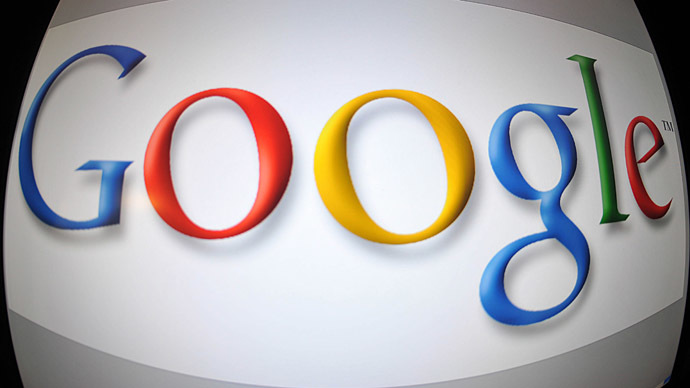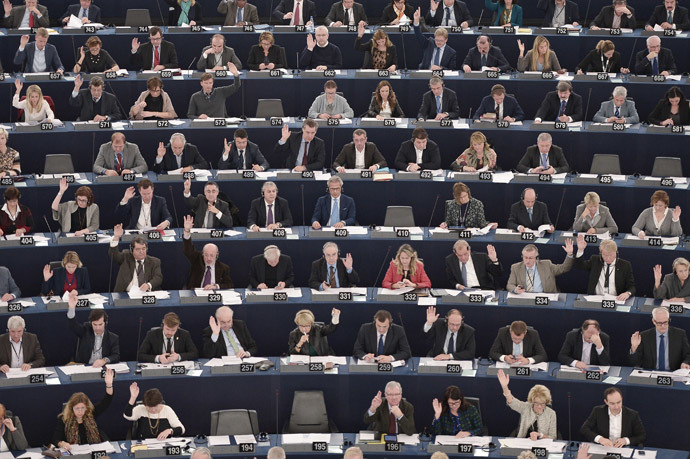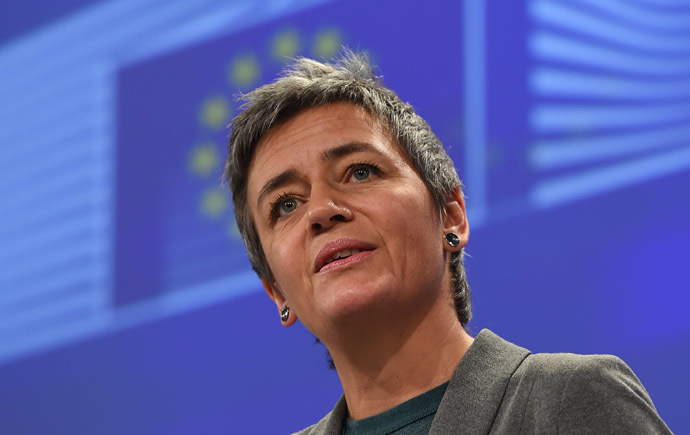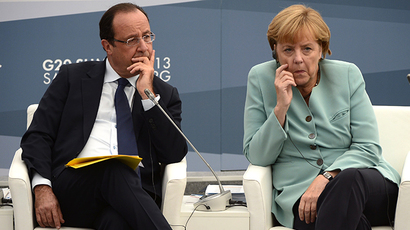EU’s parliament okays break up of Google in symbolic vote

The European Parliament has voted to make search engines split their commercial services from their business. Although the vote is largely symbolic, it adds another notch in a long running standoff between the EU and the US internet giant.
The MEPs backed a resolution, with 384 votes versus 174, calling on the EU to consider making search engines separate business from commercial services. Google was not mentioned in name, but as the tech giant has 90 percent of the EU market it would affect them the most.
The vote from the European Parliament (EP) sends a strong signal that the EU is becoming increasingly concerned with the power of US tech giants.
The vote showed the “clear adoption by the EP of a digital single market motion, including unbundling for search engine if needed,” Ramon Tremosa, Spanish liberal lawmaker and co-sponsor of the bill, wrote on Titter.

Earlier Tremosa and the other sponsor of the bill, Andrea Schwab, a German conservative, said in a statement that regulation of “the dominant online web search”, a reference to Google, “should be envisaged.”
Both Schwab and Tremosa introduced the measure on Tuesday and in a subsequent statement blamed Google for its failure to produce solutions to the antitrust investigation by the EU commission.
Google “continued thereby to suppress competition to the detriment of European consumers and businesses,” Schwab and Tremosa said, as cited by Reuters.
“Search engines like Google should not be allowed to use their market power to push forward other commercial activities of the same company,” Jan Philipp Albrecht of the Greens told Reuters, referring to a theory that Google search results are ranked based on what’s commercially smart for the firm, not the user.

Although the European Parliament itself has no power over this issue, this resolution increases pressure on the European Commission – the executive arm of the EU – to take action.
READ MORE: Google should apply ‘Right to be Forgotten’ worldwide – EU watchdogs
“Google has failed to propose adequate remedies to address the Commission's concerns and continued to pursue its practices unabatedly. It continued thereby to suppress competition to the detriment of European consumers and businesses," the co-sponsors of the bill added.
Google is already the subject of a four-year investigation by the Commission after it received complaints from a number of other companies, including Microsoft, Expedia and European publishers.
The stand-off has not gone down well in the US and senior US politicians and two US government committees have criticized the proposal saying that it raises questions about the EU’s commitment to open markets.
“This and similar proposals build walls rather than bridges [and] do not appear to give full consideration to the negative effect such policies may have on the broader US-EU trade relationship,” wrote senators Ron Wyden and Orrin Hatch and congressmen Dave Camo and Sander Levin.

What is not quite clear is how much the issue is being politicized.
The complaints received by the Commission and subsequent investigation focused on how Google copies content from other websites such as restaurant reviews and then includes them in its own services.
They also looked at the exclusivity Google uses to sell advertising around the search terms people use, and restrictions on advertisers from moving their ad campaign onto rival search engines.
But the Computer and Communications Industry Association (CCIA) said the “increased politicization” of the investigation into Google was “deeply troubling.”
Its members include eBay, Facebook, Microsoft, Samsung as well as Google. They also said that splitting or unbundling commercial services from business was an “extreme and unworkable” solution in quickly changing online markets.
"While clearly targeting Google, the parliament is in fact suggesting all search companies, or online companies with a search facility, may need to be separated. This is of great concern as we try to create a digital single market," the group said.














